Unlocking Growth: How ERP Can Transform Your Small Business
 .
.
Welcome, fellow entrepreneurs! In the bustling landscape of small businesses, navigating the complexities of growth can feel like a constant uphill battle. From managing inventory and finances to tracking customer interactions and streamlining operations, the demands on your time and resources can be overwhelming. But what if there was a single solution that could integrate all these vital functions, providing you with a clear and comprehensive view of your business? Enter the world of Enterprise Resource Planning (ERP), a powerful tool that can revolutionize the way you operate and unlock unprecedented growth potential.
Imagine a scenario where you can effortlessly access real-time data on your inventory levels, customer orders, and financial performance. Imagine a system that automates repetitive tasks, freeing up valuable time for strategic decision-making. This is the promise of ERP for small businesses. It’s not just about automating processes; it’s about empowering you to make informed decisions, optimize resource allocation, and ultimately, achieve your business goals.
But the question remains: is ERP truly the right fit for your small business? Is it a complex and expensive solution that only benefits large corporations, or can it be tailored to meet the unique needs of a growing enterprise? The answer, my friends, is a resounding yes. Modern ERP systems are designed with flexibility and scalability in mind, making them accessible and affordable for businesses of all sizes.
While the initial investment might seem daunting, the long-term benefits far outweigh the costs. By streamlining operations, eliminating redundancies, and providing valuable insights, ERP can significantly increase your efficiency, productivity, and profitability.
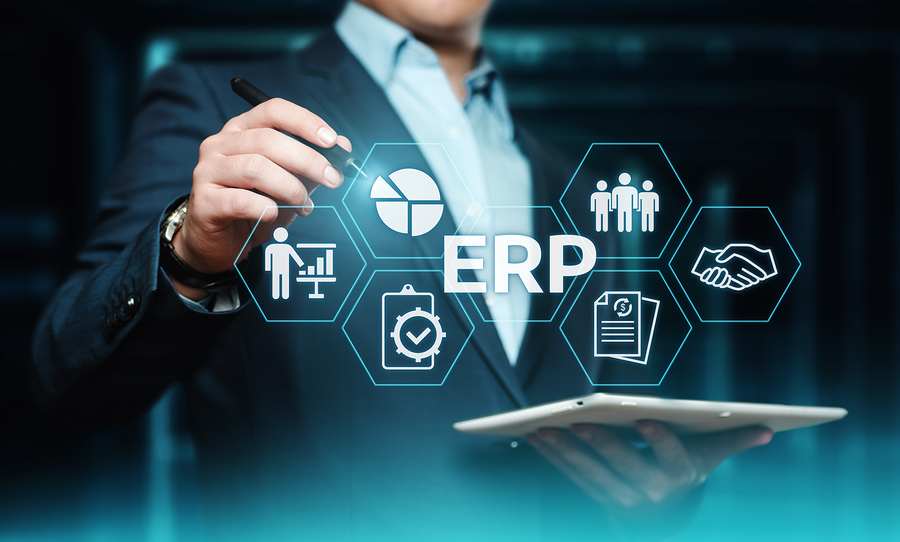 .
.
This comprehensive guide will delve into the intricate world of ERP for small businesses, addressing your concerns, demystifying the intricacies, and ultimately empowering you to make an informed decision about whether this powerful tool can be your secret weapon for growth.
Navigating the ERP Landscape: Understanding the Basics
Before we embark on this journey, let’s first define what exactly ERP is and why it matters for your small business.
What is ERP?
At its core, ERP is a software solution that integrates various business functions into a single, unified system. Imagine it as a central hub that connects all your departments, from sales and marketing to finance and inventory management. This integration eliminates data silos, fosters seamless communication, and provides a holistic view of your operations.
The Power of Integration: Breaking Down Silos
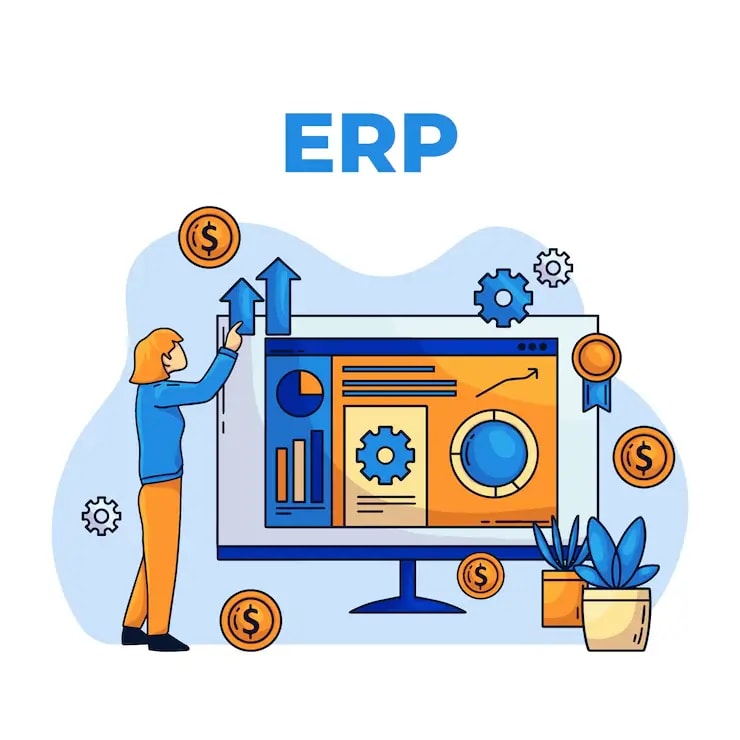 .
.
Traditionally, small businesses often rely on disparate systems for different functions. You might have a separate spreadsheet for inventory, a different program for customer relationship management (CRM), and yet another for accounting. This fragmented approach leads to data inconsistencies, inefficiencies, and a lack of visibility across your business.
ERP bridges these gaps by integrating all your essential business processes into a single platform. This eliminates the need for manual data entry, reduces errors, and ensures that everyone is working from the same source of truth.
Beyond Automation: Unlocking Insights
But ERP is more than just a system for automating tasks. It’s a powerful tool for gaining valuable insights into your business performance. By analyzing data from across your operations, you can identify trends, pinpoint areas for improvement, and make data-driven decisions that drive growth.
The ERP Advantage: Why Small Businesses Should Consider It
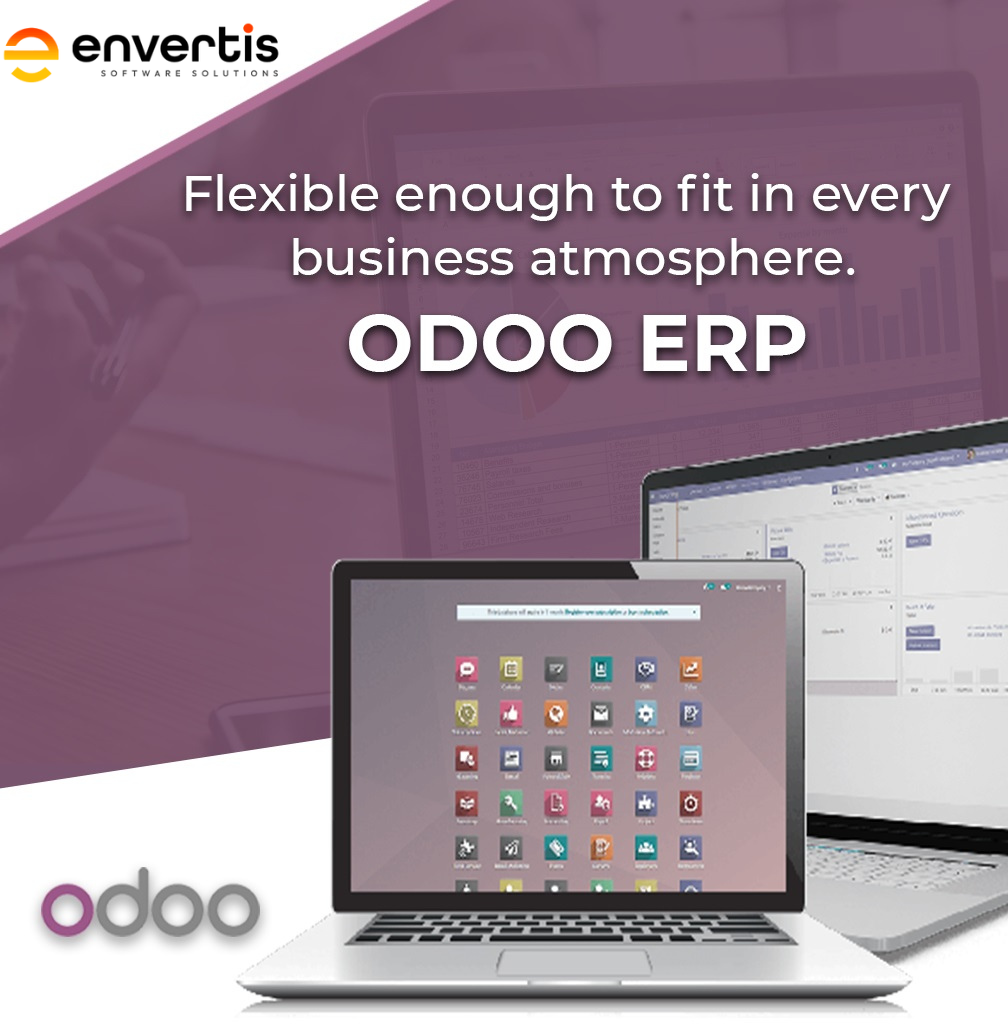 .
.
Now that we’ve established a foundation, let’s explore the specific advantages that ERP offers to small businesses.
1. Enhanced Efficiency and Productivity:
ERP streamlines your operations by automating repetitive tasks, eliminating manual processes, and reducing errors. This frees up valuable time for your employees to focus on more strategic initiatives, boosting overall productivity.
2. Improved Inventory Management:
ERP provides real-time visibility into your inventory levels, allowing you to optimize stock levels, reduce waste, and prevent stockouts. This ensures that you have the right products in the right place at the right time, minimizing downtime and maximizing customer satisfaction.
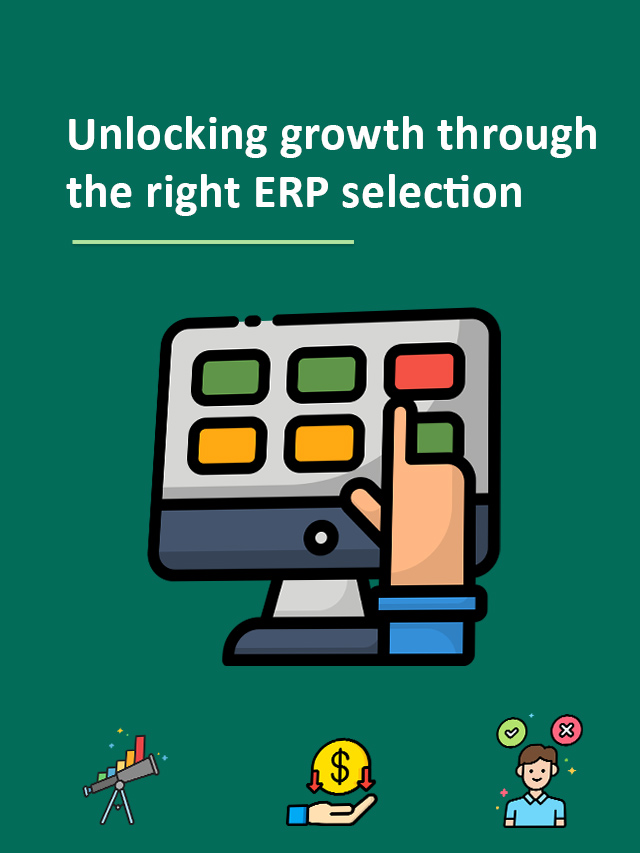 .
.
3. Enhanced Financial Management:
ERP simplifies financial processes by automating tasks like invoicing, accounts payable, and accounts receivable. This improves accuracy, reduces errors, and provides real-time financial insights, enabling you to make informed financial decisions.
4. Streamlined Customer Relationship Management (CRM):
ERP integrates your CRM system, allowing you to manage customer interactions, track sales opportunities, and provide personalized service. This strengthens customer relationships, fosters loyalty, and drives repeat business.
5. Increased Visibility and Control:
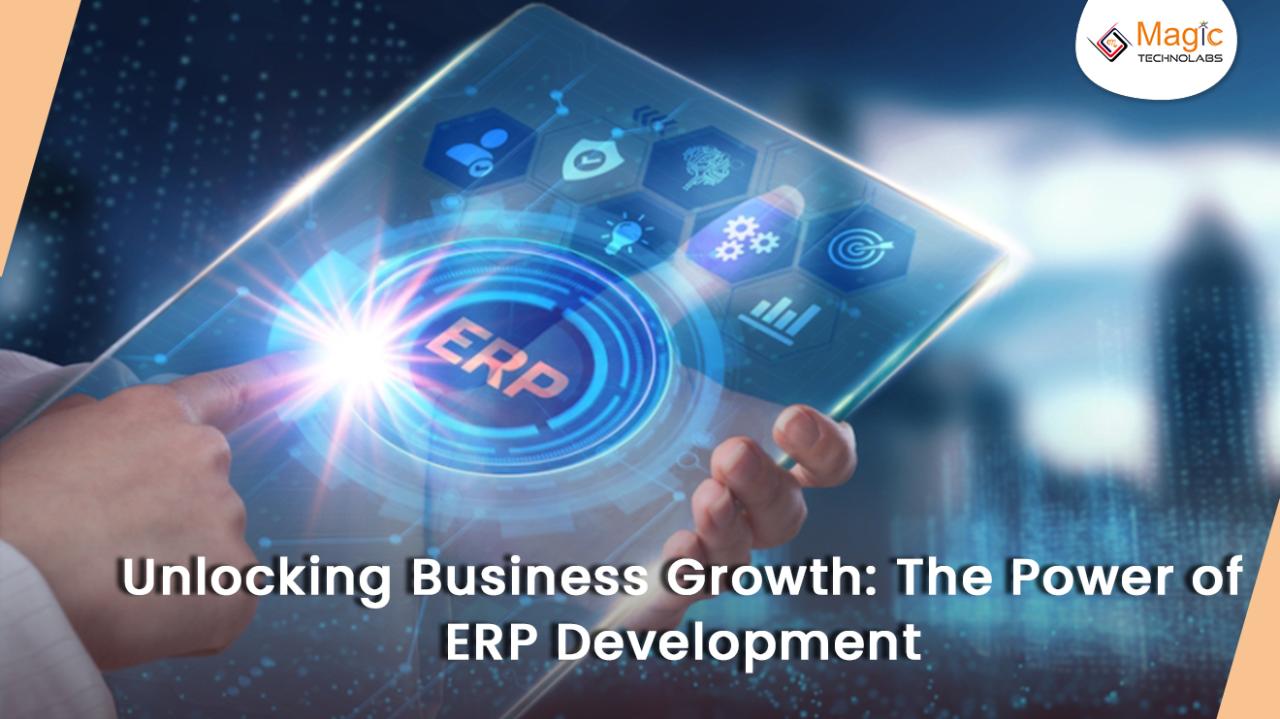 .
.
ERP provides a single source of truth for all your business data, giving you a comprehensive view of your operations. This allows you to track performance metrics, identify bottlenecks, and make informed decisions to improve efficiency and profitability.
6. Improved Decision-Making:
ERP empowers you to make data-driven decisions by providing real-time insights into your business performance. This allows you to identify trends, anticipate challenges, and capitalize on opportunities, driving sustainable growth.
7. Scalability and Flexibility:
Modern ERP systems are designed with scalability and flexibility in mind, allowing you to adapt the system as your business grows. This ensures that your ERP solution can meet your evolving needs without requiring significant changes or investments.
Navigating the ERP Journey: A Practical Guide
Now that you understand the potential benefits of ERP, let’s delve into the practical aspects of implementing and using this powerful tool.
1. Defining Your Needs and Goals:
Before you embark on your ERP journey, it’s crucial to define your specific needs and goals. What are your biggest challenges? What areas of your business could benefit most from automation and improved visibility?
2. Choosing the Right ERP Solution:
The market offers a wide range of ERP solutions, each with its own features, pricing, and target audience. It’s essential to carefully evaluate your options and select a system that aligns with your business size, industry, and specific requirements.
3. Implementing Your ERP System:
Implementing an ERP system can be a complex process that requires careful planning and execution. It’s crucial to involve all stakeholders, provide adequate training, and manage the transition smoothly to minimize disruption to your business operations.
4. Integrating with Existing Systems:
If you already have other software systems in place, you’ll need to ensure that your ERP solution can integrate seamlessly with them. This minimizes data duplication, ensures consistency, and streamlines your workflows.
5. Training and Support:
Once your ERP system is implemented, it’s essential to provide adequate training to your employees to ensure they can effectively use the system. Ongoing support is also critical to address any issues that may arise and maximize the value of your investment.
ERP for Small Businesses: A Case for Customization
While the benefits of ERP are undeniable, it’s important to recognize that a one-size-fits-all approach might not always be the best solution for small businesses.
1. Tailoring ERP to Your Specific Needs:
Small businesses often have unique requirements that might not be fully addressed by standard ERP packages. Customization allows you to tailor the system to your specific workflows, processes, and data needs.
2. Selecting a Flexible and Scalable Solution:
As your business grows, your ERP needs will inevitably evolve. Choose a system that is flexible and scalable, allowing you to add new modules, customize features, and adapt to changing requirements without significant disruption.
3. Leveraging Cloud-Based Solutions:
Cloud-based ERP solutions offer several advantages for small businesses, including affordability, scalability, and accessibility. They eliminate the need for expensive hardware and software licenses, making them an attractive option for businesses with limited budgets.
The ERP Ecosystem: Understanding the Landscape
The ERP landscape is constantly evolving, with new technologies and solutions emerging regularly. To navigate this dynamic environment, it’s essential to understand the key players and trends shaping the industry.
1. The Rise of Cloud-Based ERP:
Cloud-based ERP solutions are gaining popularity due to their affordability, scalability, and accessibility. They eliminate the need for expensive hardware and software licenses, making them an attractive option for small businesses.
2. Integration with Other Business Applications:
Modern ERP systems are designed to integrate seamlessly with other business applications, such as CRM, e-commerce platforms, and accounting software. This eliminates data silos, streamlines workflows, and provides a comprehensive view of your operations.
3. Mobile Accessibility and Real-Time Insights:
Mobile accessibility allows you to access your ERP system from anywhere, anytime, providing real-time insights into your business performance. This empowers you to make informed decisions, even when you’re on the go.
4. Artificial Intelligence (AI) and Machine Learning (ML):
AI and ML are transforming the ERP landscape by automating tasks, providing predictive analytics, and enhancing decision-making. These technologies are helping businesses gain deeper insights into their data and optimize their operations.
5. Focus on User Experience (UX):
Modern ERP systems are designed with user experience in mind, making them intuitive and easy to use. This ensures that your employees can adopt the system quickly and efficiently, maximizing its value.
The ERP Decision: Weighing the Pros and Cons
Before you commit to an ERP solution, it’s essential to weigh the pros and cons carefully and consider whether it’s the right fit for your business.
Advantages of ERP for Small Businesses:
- Increased Efficiency and Productivity: ERP streamlines operations, automates tasks, and reduces errors, freeing up valuable time for employees.
- Improved Visibility and Control: ERP provides a single source of truth for all your business data, giving you a comprehensive view of your operations.
- Enhanced Financial Management: ERP simplifies financial processes, improves accuracy, and provides real-time financial insights.
- Streamlined Customer Relationship Management (CRM): ERP integrates your CRM system, allowing you to manage customer interactions and provide personalized service.
- Scalability and Flexibility: Modern ERP systems are designed with scalability and flexibility in mind, allowing you to adapt the system as your business grows.
Disadvantages of ERP for Small Businesses:
- Initial Investment Costs: Implementing an ERP system can require a significant upfront investment in software, hardware, and implementation services.
- Complexity and Learning Curve: ERP systems can be complex, requiring time and effort to learn and implement effectively.
- Potential for Disruption: Implementing an ERP system can disrupt your existing workflows and require significant changes to your business processes.
- Customization Costs: Tailoring an ERP system to your specific needs can be expensive, especially if you require extensive customization.
- Integration Challenges: Integrating your ERP system with other business applications can be complex and time-consuming.
ERP for Small Businesses: A Comprehensive Summary
In conclusion, ERP can be a powerful tool for small businesses seeking to streamline operations, improve efficiency, and drive growth. By integrating various business functions into a single, unified system, ERP provides real-time insights, automates tasks, and enhances decision-making.
Key Takeaways:
- ERP is a software solution that integrates various business functions into a single, unified system.
- The benefits of ERP include increased efficiency, improved visibility, enhanced financial management, streamlined CRM, and scalability.
- The disadvantages of ERP include initial investment costs, complexity, potential for disruption, customization costs, and integration challenges.
- Choosing the right ERP solution for your business requires careful consideration of your needs, goals, and budget.
- Implementing an ERP system requires planning, training, and ongoing support to maximize its value.
FAQs: Addressing Your Concerns
1. Is ERP only for large businesses?
No, ERP is becoming increasingly accessible and affordable for small businesses. Many cloud-based ERP solutions are specifically designed for smaller enterprises, offering flexible pricing plans and scalable features.
2. How much does ERP cost?
The cost of ERP varies depending on the chosen solution, the size of your business, and the level of customization required. Cloud-based ERP solutions typically offer more affordable pricing plans compared to traditional on-premise systems.
3. How long does it take to implement ERP?
The implementation time for ERP can vary depending on the complexity of the system, the size of your business, and the level of customization required. It can range from a few months to a year or more.
4. What are the key features of ERP?
Key features of ERP include inventory management, financial management, customer relationship management (CRM), supply chain management, human resources management, and reporting and analytics.
5. How can I choose the right ERP solution for my business?
Consider your business size, industry, specific needs, budget, and the level of customization required. Research different ERP solutions, compare features and pricing, and seek recommendations from other businesses in your industry.
6. What are the benefits of cloud-based ERP?
Cloud-based ERP solutions offer affordability, scalability, accessibility, and ease of implementation. They also eliminate the need for expensive hardware and software licenses.
7. What are the challenges of implementing ERP?
Challenges include the initial investment cost, the complexity of the system, the potential for disruption to existing workflows, and the need for adequate training and support.
8. How can I ensure a successful ERP implementation?
Involve all stakeholders, provide adequate training, manage the transition smoothly, and ensure proper integration with existing systems.
9. What are the best practices for using ERP?
Use the system consistently, keep data accurate and up-to-date, leverage reporting and analytics features, and seek ongoing support to maximize its value.
10. Can ERP help my business grow?
Yes, ERP can significantly contribute to your business growth by streamlining operations, improving efficiency, and providing valuable insights for informed decision-making.
11. What are the latest trends in ERP?
Cloud-based ERP, integration with other business applications, mobile accessibility, artificial intelligence (AI) and machine learning (ML), and user experience (UX) are key trends shaping the industry.
12. What are the best resources for learning more about ERP?
Consult industry publications, attend webinars and conferences, and connect with ERP vendors and consultants.
13. How can I get started with ERP?
Identify your needs and goals, research different ERP solutions, contact vendors for demos and consultations, and develop a detailed implementation plan.
The ERP Journey: Embracing the Future of Small Business
As you embark on this exciting journey, remember that ERP is not just a software solution; it’s a strategic investment in your business’s future. By embracing the power of integration, automation, and data-driven decision-making, you can unlock unprecedented growth potential, streamline operations, and achieve your business goals.
Call to Action:
- Don’t wait! Take the first step towards a more efficient and profitable future by researching ERP solutions that align with your business needs.
- Contact reputable ERP vendors for demos, consultations, and personalized advice.
- Embrace the power of ERP and unlock the potential for growth and success in the ever-evolving business landscape.
Disclaimer:
This article provides general information about ERP for small businesses and should not be considered financial or legal advice. It is recommended to consult with qualified professionals for specific guidance tailored to your individual circumstances.
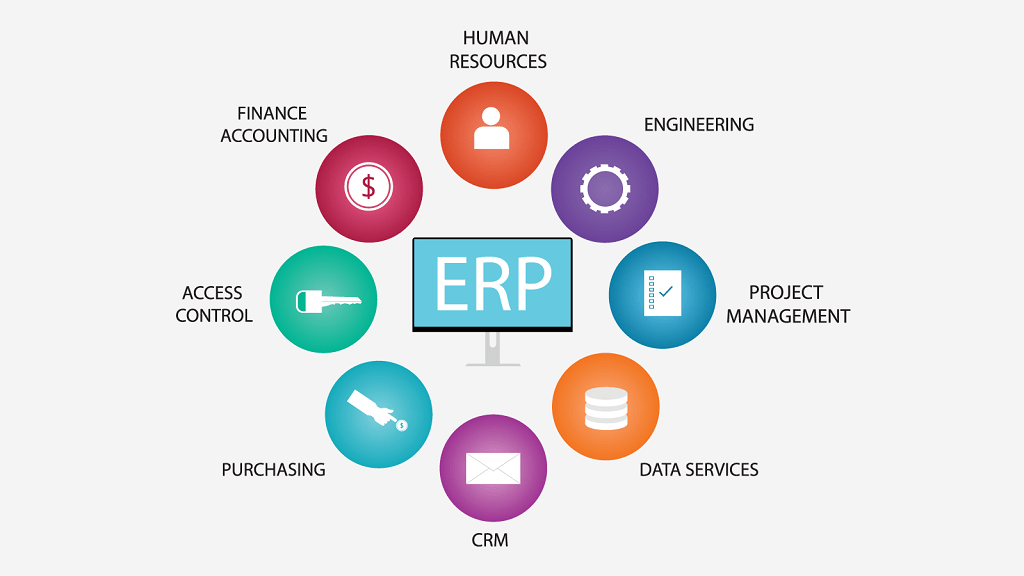 .
.
